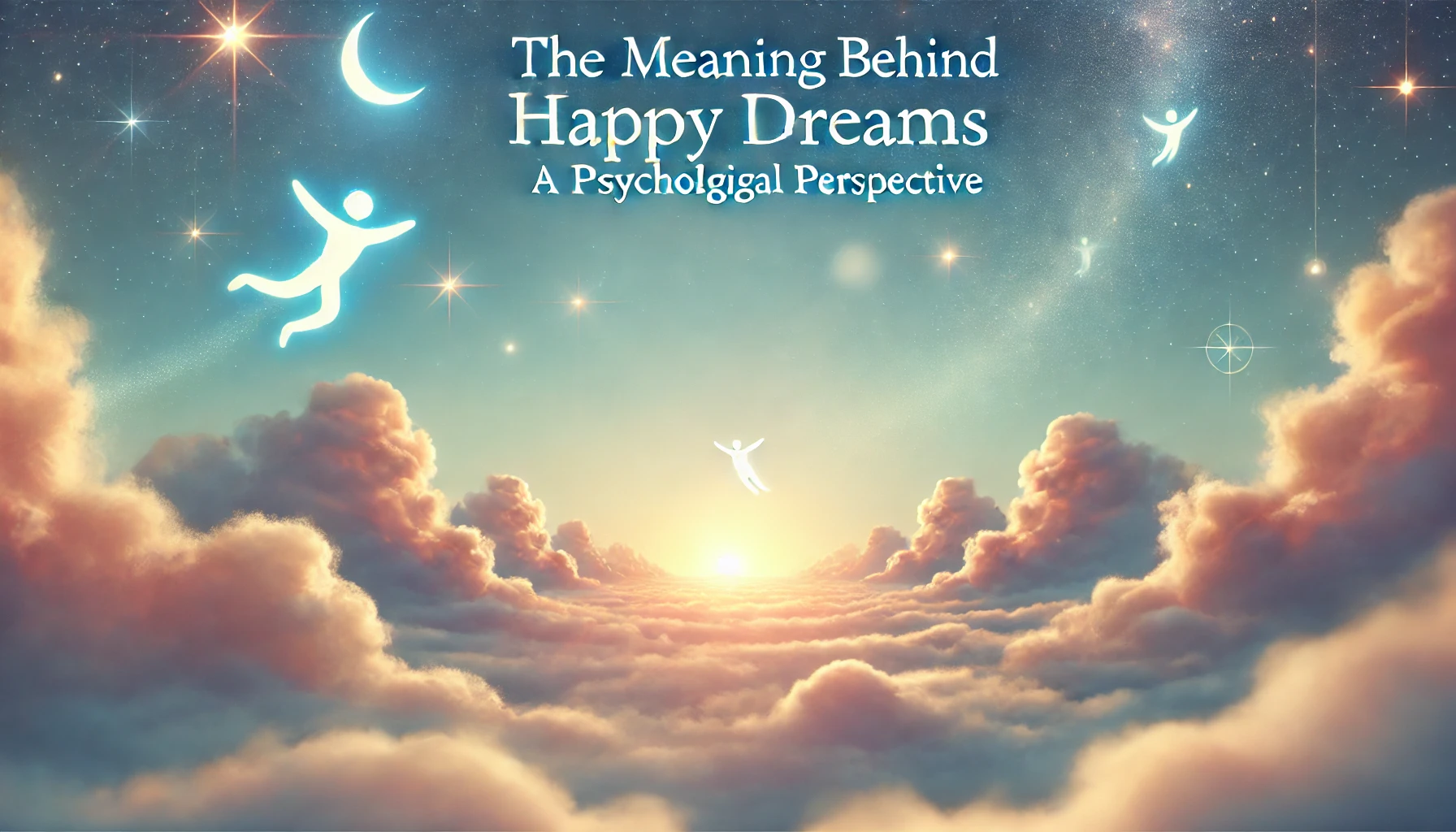Happy dreams, at their core, often represent emotional balance, fulfillment, and a positive mental state. Psychologists suggest that when we dream of joyful experiences, our subconscious mind is processing contentment or a deep desire for harmony in waking life. These dreams can serve as indicators of how we manage emotions, our desires for happiness, or even aspirations we may not consciously recognize. But what exactly lies behind the joyful imagery in our dreams? Let’s dive deeper into the psychological interpretations of happy dreams and what they reveal about our emotional well-being.
Emotional Processing and Happy Dreams
Dreams serve as a crucial mechanism for processing emotions. According to psychologist Matthew Walker, author of Why We Sleep, dreams, especially positive ones, help us process and integrate emotions, acting like an overnight therapy session. Happy dreams reflect the mind’s ability to regulate and make sense of positive emotions while helping us navigate our complex emotional worlds.
When you experience happiness in a dream, it is often because your brain is sorting through emotional memories, filtering through your experiences, and prioritizing the positive. Studies show that people with more optimistic perspectives on life tend to have more positive dream content. In fact, a study published in the Journal of Sleep Research revealed that individuals who regularly experienced happiness or joy in their dreams often reported a higher sense of emotional well-being and life satisfaction. This suggests a strong correlation between happy dreams and mental health.
The Role of Symbolism in Positive Dreams
Psychologists also emphasize the role of symbolism in dreams. While you may dream of soaring through the clouds or laughing with friends, these dream images are not always literal. According to Carl Jung’s theory of dreams, positive dreams often symbolize inner desires, aspirations, or the realization of untapped potential. For instance, dreaming of flying can signify freedom or a release from life’s burdens, while celebrating in a dream might indicate that your mind is recognizing personal achievements or future successes.
Some experts point to the idea that happy dreams are manifestations of our “ideal self,” the version of ourselves we strive to be. In this sense, your dreams may act as a mental rehearsal space, helping you feel more prepared or confident in real-life situations that mirror the emotions or experiences in your dream.
Happy Dreams and Their Connection to Stress Relief
A significant body of research highlights that happy dreams can be a response to stress relief. Our waking lives often involve challenges and stressors, but during sleep, the brain may engage in a form of emotional restoration. Dreaming of happy moments, even if they haven’t occurred in real life, could be your brain’s way of counteracting the stress you experience daily. This creates a balance between difficult emotions during the day and the uplifting, positive feelings experienced at night.
Neuroscientist Rosalind Cartwright, who studied the links between dreams and mental health, noted that pleasant dreams often contribute to resolving stress and emotional distress. Cartwright’s studies showed that individuals who had positive dreams after traumatic events showed signs of emotional recovery faster than those whose dreams were more neutral or negative.
Statistics and Expert Insights
Statistics from a study published in Sleep Medicine found that roughly 50-80% of dreams have an emotional component, with about 20% of those emotions being positive. Although dreams are often filled with anxiety and fear, the presence of happy dreams indicates the brain’s tendency to seek emotional regulation and balance.
A survey by the American Psychological Association (APA) showed that people who regularly have positive dreams were 35% more likely to report lower stress levels and 25% more likely to feel motivated and productive in their waking lives. These findings reinforce the belief that happy dreams aren’t just passive experiences—they contribute directly to an individual’s overall emotional and psychological well-being.
Why Do Some People Experience Happy Dreams More Often?
Many factors can influence how frequently one experiences happy dreams. Positive emotional experiences during the day, strong personal relationships, and a sense of achievement all contribute to a mind more likely to produce joyful dreams. Sleep quality also plays a role. People who sleep deeply and maintain regular sleep schedules are more likely to experience dreams rich in positive emotions.
Psychiatrist Dr. Ernest Hartmann, who specialized in dream studies, explained that emotional continuity plays a significant role in dream content. He argued that the mood a person carries throughout the day can influence the emotional tone of their dreams. If your waking life is filled with joy, gratitude, and satisfaction, this often spills over into your dreams, creating a cycle of emotional positivity.
The Takeaway: Happy Dreams as a Mirror to Our Well-being
In conclusion, happy dreams are far more than fleeting moments of joy during sleep; they serve as reflections of our mental health, our subconscious emotional processing, and our innermost desires. Whether they are revealing unfulfilled aspirations, helping to alleviate stress, or reinforcing the happiness we experience in our waking lives, happy dreams provide key insights into our emotional well-being. By paying attention to these dreams, we may find clues to areas of our life that bring us joy, calm, and contentment, and perhaps better understand the path toward achieving emotional fulfillment in our waking reality.
Ethan Numeros is a distinguished dream analysis expert with a background in Mathematics and Philosophy from Stanford University and specialized training in Dream Analysis. With 15 years in academia, he has authored two acclaimed books and numerous articles, focusing primarily on dream interpretation. Mr. Numeros excels in offering personalized consultations, helping individuals unlock the mysteries of their dreams. His expertise in decoding the psychological aspects of dreams has made him a sought-after figure in the field of dream explanation.
